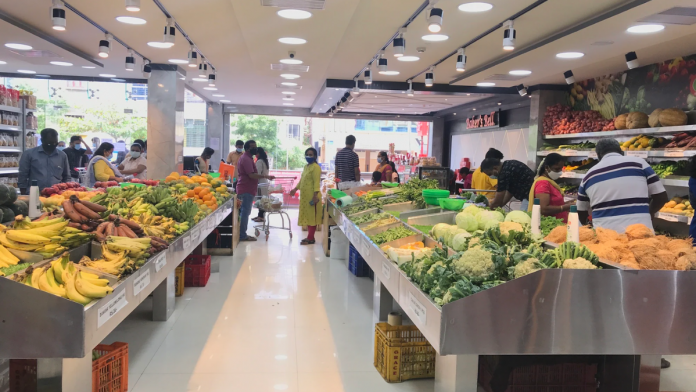News in brief: Nigeria’s inflation rate reached 26.72% in September 2023, the highest since 2005, mainly driven by surging food prices, removal of fuel subsidies, and naira devaluation. The government is taking measures to address the issue, but a resolution timeframe remains uncertain.
Nigeria’s inflation rate rose to 26.72% in September 2023, the highest level since 2005, according to the latest report by the National Bureau of Statistics (NBS).
This figure represents a 0.92% increase from the inflation rate in August 2023 (25.80%). The rise in inflation is being driven by soaring food prices, which increased by 30.64% on a year-on-year basis in September. Food and non-alcoholic beverages contributes 13.84% to the overall inflation.
Other notable factors contributing to inflation include the removal of fuel subsidies, which President Bola Tinubu announced at the end of May 2023 as well as the continuous devaluation of the naira. These factors have led to an increase in the cost of transportation and other inputs for food production.
For example, feed costs for poultry has been steadily climbing leading to industry stakeholders calling for government aid and actions to prevent total collapse. Also, foreign exchange constraints have made it difficult for farmers to import essential inputs such as fertilizers and pesticides.
Furthermore, the NBS report showed that inflation varied across different states in Nigeria. Kogi, Rivers, and Lagos states recorded the highest food inflation rates on a year-on-year basis, while Jigawa, Borno, and Sokoto states recorded the lowest.
Food inflation in Nigeria has been rising steadily in 2023, reaching 30.64% in September, up from 24.32% in January.
Insights On Nigeria's food inflation – August 2023 Update Follow@AgricJunction
Link in bio. pic.twitter.com/7QDwEMu8M1— The Junction (@AgricJunction) September 21, 2023
The high prevalence of diseases has led to crop losses, lowering yield, and the continual limited access to credit facilities.
The Central Bank of Nigeria (CBN) has been taking steps to address the rising inflation rate, including raising interest rates. However, the effects are yet to be seen.
Nigeria’s high inflation rate means that the prices of goods and services are rising at a rapid pace making it difficult for people to afford basic necessities. The government has assured the public of efforts being taken to address the problem. However, it is unclear how long it will take for a satisfactory resolution of the situation.



